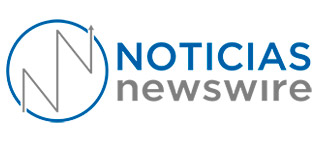
FORT LAUDERDALE, FL – May 13, 2020 – (LATINX NEWSWIRE) – Tragedies become even worse when scammers prey upon consumer’s fear and compassion. Debt.com experts compiled the latest COVID-19 scams and tips on what to do to protect yourself and others.
They have also developed a COVID-19 Personal Finance News & Resources section covering the coronavirus from many angles to help people get the information they need.
COVID-19 might be an unprecedented pandemic, but thankfully, the scams are predictable and easy to spot,” says Debt.com Chairman and CPA Howard Dvorkin.
A few of the most prevent scams are:
- Charity scams – Every natural disaster is followed by pleas for donations from legitimate charities and scammers posing as charities. If consumers want to donate, they need to research the name of the charity at reputable sites such as BBB Wise Giving Alliance, Charity Navigator, CharityWatch, or GuideStar.
- Testing scams – Controversy rages about whether there will be enough tests to go around. That is primetime for scammers, who are blasting out emails and phone calls advertising “cheap accurate test kits for only $79!” Be wary of ads for test kits. Do not respond to false advertising and ask to be removed from their call list. The FDA recently announced approval for one home test kit, which requires a doctor’s order. But most test kits being advertised have not been approved by the FDA and are not necessarily accurate.
- Government check scams – People researching stimulus checks, need to be aware that scammers are pretending to be government officials and trying to steal personal information. Do not respond to texts, emails or calls about checks from the government. If possible, report the scam to the government.
- Cleaning scams – Some scammers are falsely claiming that COVID-19 may be in your air ducts, and they are offering full air duct cleaning and sanitation for a/c units to be free of bacteria. Other scammers are using illegal robocalls to pitch everything from laundry detergents that are supposed to kill the virus in washing machines to work-at-home schemes. Do not respond to those scams. Hang up on robocalls. Search online reviews for local providers and do business with them.
- Bank scams – As COVID-19 continues to put people out of work and shake the stock market, banks are making changes, whether it is restricting their office hours or offering financial assistance. Unfortunately, scammers know this – and they are ready to steal information. Like other scams, it is best to just ignore it. Banks will never ask for personal information over email or text message and won’t initiate a call to ask for PIN numbers or credit card numbers.
As new scams arise, check the COVID-19 Resource page, It is important that consumers remember to only use sites like coronavirus.gov and usa.gov/coronavirus to get the latest information.
SOURCE: Debt.com
About Debt.com:
Debt.com is the consumer website where people can find help with credit card debt, student loan debt, tax debt, credit repair, bankruptcy, and more. Debt.com works with vetted and certified providers that give the best advice and solutions for consumers ‘when life happens’.


